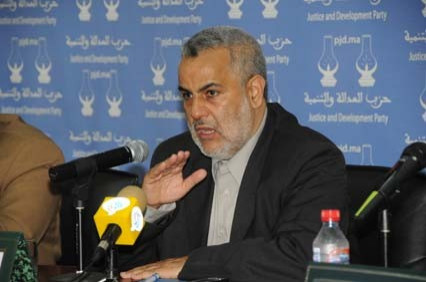Moderate Islamists Declare Victory in Moroccan Election

The moderate Islamist Justice and Development Party (PJD) has won Morocco’s parliamentary elections -- the first such poll since the country’s King Mohamed VI established a new amended constitution in July.
PJD, led by Abelilah Benkirane, will be the single biggest party in the new chamber and will presumably provide the new Prime Minister for the kingdom. In previous years, the king would appoint any Prime Minister of his choosing.
Interior Minister Taib Cherkaoui told a news conference that according to preliminary results, PJD won 80 seats in the 395-seat assembly. The nationalist Istiqlal party won 45 seats, he added.
However, according to Al Jazeera, Lahcen Daoudi, another prominent official of PJD, the party won more than 100 seats in parliament. He described the poll as a historic turning point.”
We thank the Moroccans who voted for the PJD and we can only be satisfied, Benkirane told Agence France Presse.
Morocco's current Prime Minister, Abbas Al Fassi, said on Saturday his nationalist Istiqlal party will enter into a coalition with the PJD.
The PJD's victory is a victory for democracy, Fassi told Reuters.
The PJD’s victory is somewhat similar to what recently happened in Tunisia, where the moderate Islamist Ennahda party won an election last month.
Prior to the Morocco election, some anti-government protesters -- including the pro-reform February 20 movement -- called for a boycott of the vote because they felt the king’s reforms did not go far enough. Among other things, the monarch will still solely dictate policy over such key issues as the military, security and religion. Indeed, he also retains the right to appoint ambassadors and diplomats.
Others feared the king would not actually implement some of the modest reforms he had promised.
However, the amended constitution does provide for greater powers to the prime minister and parliament. For example, the PM will now have the right to appoint government officials and dissolve parliament.
The boycott campaign was apparently partially successful -- the Interior Ministry reported that 45.4 percent of the 13.5 million Moroccans eligible to vote actually turned out (but higher than many had expected).
Najib Chawki, an activist for “February 20,” told Reuters after the vote: This [low turnout] sends a strong signal to authorities that Moroccans are not buying the proposed reforms. We will not give up until our demands are met.”
Thirty-one political parties dueled for the 395 seats in the lower house of parliament, meaning no one party could ever gain a decisive majority. However, as a concession to modernity, 60 of the overall seats in parliament are reserved for women, while 30 are kept for young people.
Located on the extreme northeastern part of Africa, the kingdom of Morocco has largely avoided the bloodshed and turmoil experienced in most other Arab countries in this epochal year of revolution.
A crucial issue in Morocco is the widespread popularity and reverence given to the king and the royal family by the vast majority of the kingdom’s poor and illiterate population.
Morocco has been ruled by the Alaoui dynasty -- which claims to be descended from the Prophet Muhammad himself -- since 1664.
Political parties, therefore, are reluctant to directly criticize the king, who is, in effect, viewed as commander of the faithful.
Still, just prior to the election Omar Bendourou, a constitutional law professor at Rabat's Mohamed V University, told Al-Jazeera, that a high turnout would provide some much-needed legitimacy.
A strong turnout in the 2011 elections would give credibility to the constitutional reform adopted in July,” he said.
And it would give them some credibility, a favorable image abroad of how the kingdom responded to protests.
© Copyright IBTimes 2024. All rights reserved.





















